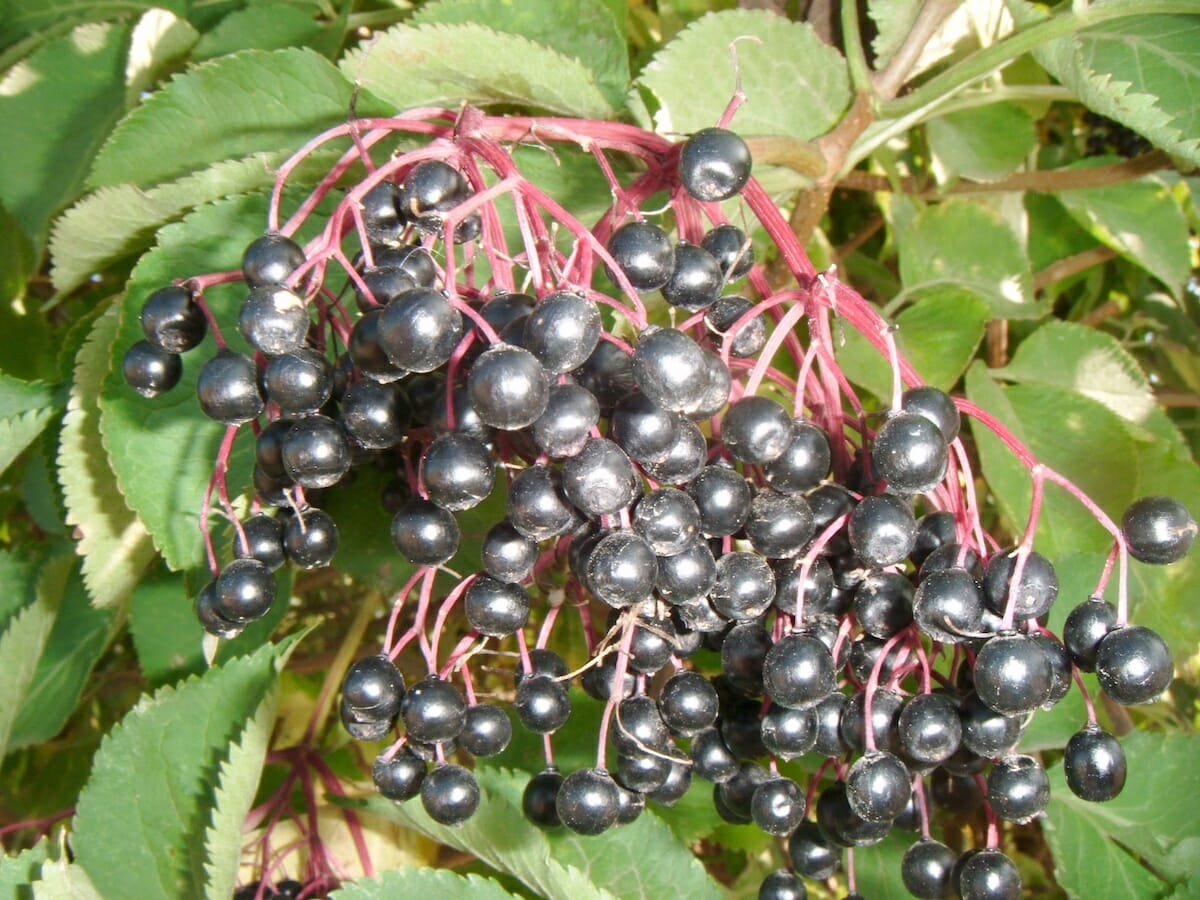Background
Elderberry is the dark purple berry of the European or black elder tree, which grows in the warmer parts of Europe, North America, Asia, and Northern Africa.
Common Names: European elder, black elder, elderberry, elder flower, sambucus
Latin Names: Sambucus nigra
Elderberry has been used in folk medicine to treat colds and flu.
Elderberry is promoted as a dietary supplement for colds, flu, and other conditions. It has also been promoted for COVID-19, but there is no good evidence to support its use.
How Much Do We Know?
A small number of studies in people have evaluated elderberry for flu and other upper respiratory infections. Little research has been done on other uses of elderberry.
What Have We Learned?
Some preliminary research suggests that elderberry may relieve symptoms of flu or other upper respiratory infections.
No published research studies have evaluated the use of elderberry for COVID-19. The U.S. Food and Drug Administration and Federal Trade Commission have taken action against companies that marketed products with unsubstantiated claims of effectiveness for COVID-19.
There’s not enough information to show whether elderberry is helpful for any other health purposes.
What Do We Know About Safety?
Raw unripe elderberries and other parts of the elder tree, such as the leaves and stem, contain toxic substances (e.g., sambunigrin) that can cause nausea, vomiting, and diarrhea; cooking eliminates this toxin. Large quantities of the toxin may cause serious illness.
Little is known about whether it’s safe to use elderberry during pregnancy or while breastfeeding.
Keep in Mind
Don’t rely on elderberry or other dietary supplements for prevention or treatment of COVID-19. They have not been shown to be effective.
Take charge of your health—talk with your health care providers about any complementary health approaches you use. Together, you can make shared, well-informed decisions.
CONSIDERING COMPLEMENTARY THERAPY?
Follow these tips:
- Gather information about the treatment. Look for websites that use qualified health professionals to create and review the information.
- Find and evaluate treatment practitioners. Ask your doctor for a referral.
- Discuss your choices with your doctor.
– By Mayo Clinic Staff
For More Information
Using Dietary Supplements Wisely
Know the Science: How Medications and Supplements Can Interact
Know the Science: 9 Questions to Help You Make Sense of Health Research
Sources:
https://www.nccih.nih.gov/health/ elderberry
Mayo Clinic Staff: https://www. mayoclinic.org/tests-procedures/complementary-alternative-medicine/in-depth/health-tip/
Exclusive content from CARE magazine








